Gardener, Heal Thyself: Therapeutic gardening programs can help
“Gardening has helped me immensely in getting through very stressful times in my life.”
Phyllis Lobbins, East Side Garden Walk gardener
Trauma tears individuals, families, and communities apart.
It can result from instances of violence or abuse, or manifest slowly and painfully over generations. Grassroots Gardens WNY (GGWNY), a Gardens Buffalo Niagara partner, aims to help heal Buffalo’s collective trauma by nurturing a network of urban gardens designed as places of peace, hope and recovery.
In 2019, GGWNY launched the Therapeutic Gardening Initiative to educate people of all ages and walks of life about the powerful benefits of tending gardens.
Using nature as a force for healing is an ancient practice well-suited for modern, community-led projects. It offers affordable, tangible ways to improve quality of life for those suffering from an array of issues, including poverty, violence and inadequate healthcare.
Many of Garden Buffalo Niagara’s popular garden events, including Garden Walk Buffalo, Open Gardens and East Side Garden Walk, give Buffalonians and visitors alike a peaceful, healing outlet for coping with life’s stresses.
“Connection and healing are more needed now than ever,” says Nicole Capozziello, Therapeutic Gardening Coordinator at Grassroots.
For example, according to a 2020 study, 74% of people of color and 70% of low-income households live in nature-deprived environments across the United States.
“What we aim to do with the Therapeutic Gardening Initiative is meet these individual and community needs, using existing garden spaces to connect people to nature, programs, and each other, which everyone deserves," Capozziello says.
Phyllis Lobbins, an East Side Garden Walk gardener and Cornell Cooperative Extension Program Master Gardener (and a speaker at the Green Thumb Beginner Gardening Class in May), says, “During some of the most stressful times in my life, I have been able to go out in my garden and relax and make myself feel better. Gardening has helped me immensely in getting through very stressful times in my life. It helps me maintain my sanity.
“I grow a lot of plants from seeds, and I enjoy sharing extra plants and division with friends and visitors who might also enjoy growing them. It is really nice to share my accomplishments with others,” Lobbins adds.
GGWNY maintains eight therapy-focused gardens throughout Buffalo and offers programs, training, and educational and material resources to other organizations that do similar work.
The initiative’s task force meets monthly and includes gardeners from Buffalo and Niagara Falls as well as representatives from Jewish Family Services, Buffalo Public Schools, Food for All, Homespace Corporation, Community Missions, the Office of People with Developmental Disabilities, Endeavor Health, Niagara Street Pediatrics, and Oishei Children's Hospital.
In addition to running free workshops on coping with grief through gardening, GGWNY conducts ongoing research on gardening’s impact, and recently used a $30,000 grant to create therapeutic gardens for people going through difficult life transitions.
One such garden is the Lotus Pad, a pocket green space serving as a peaceful outdoor refuge at Homespace, a residential facility for foster youth in downtown Buffalo.
On-site at Grassroots Gardens headquarters on Broadway, Capozziello and residents from the Office of People with Developmental Disabilities do an array of art and nature-based activities while tending to their garden. Last year’s “pizza garden” culminated in a pizza party using oregano, basil, peppers, and other pizza toppings they grew.
GGWNY offers an innovative “Grief in the Gardens” toolkit and training, giving leaders and service providers tools to help individuals experiencing loss, in whatever form it takes.
“I've heard from gardeners around the city about the many ways their community green space or home garden helps them feel better, whether they're experiencing grief, social isolation, poverty, or post-traumatic stress,” Capozziello says.
For more information on therapeutic gardening, including requests for programming, the toolkit or to join the Grassroots Gardens WNY Therapeutic Gardening Task Force, please email nicole@grassrootsgardens.org or call 716-783-9653.
by Lauren Newkirk Maynard, Gardens Buffalo Niagara board member
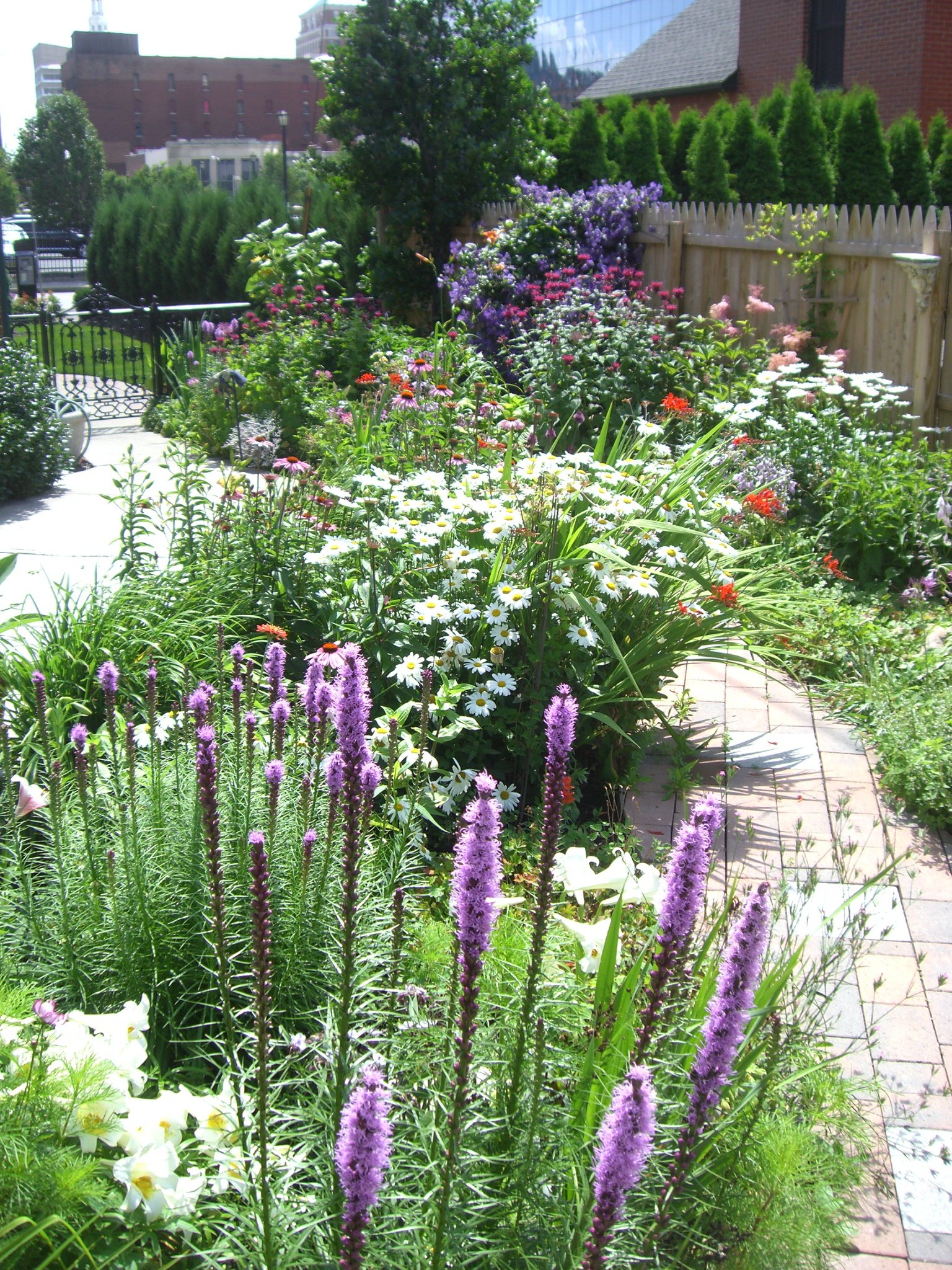
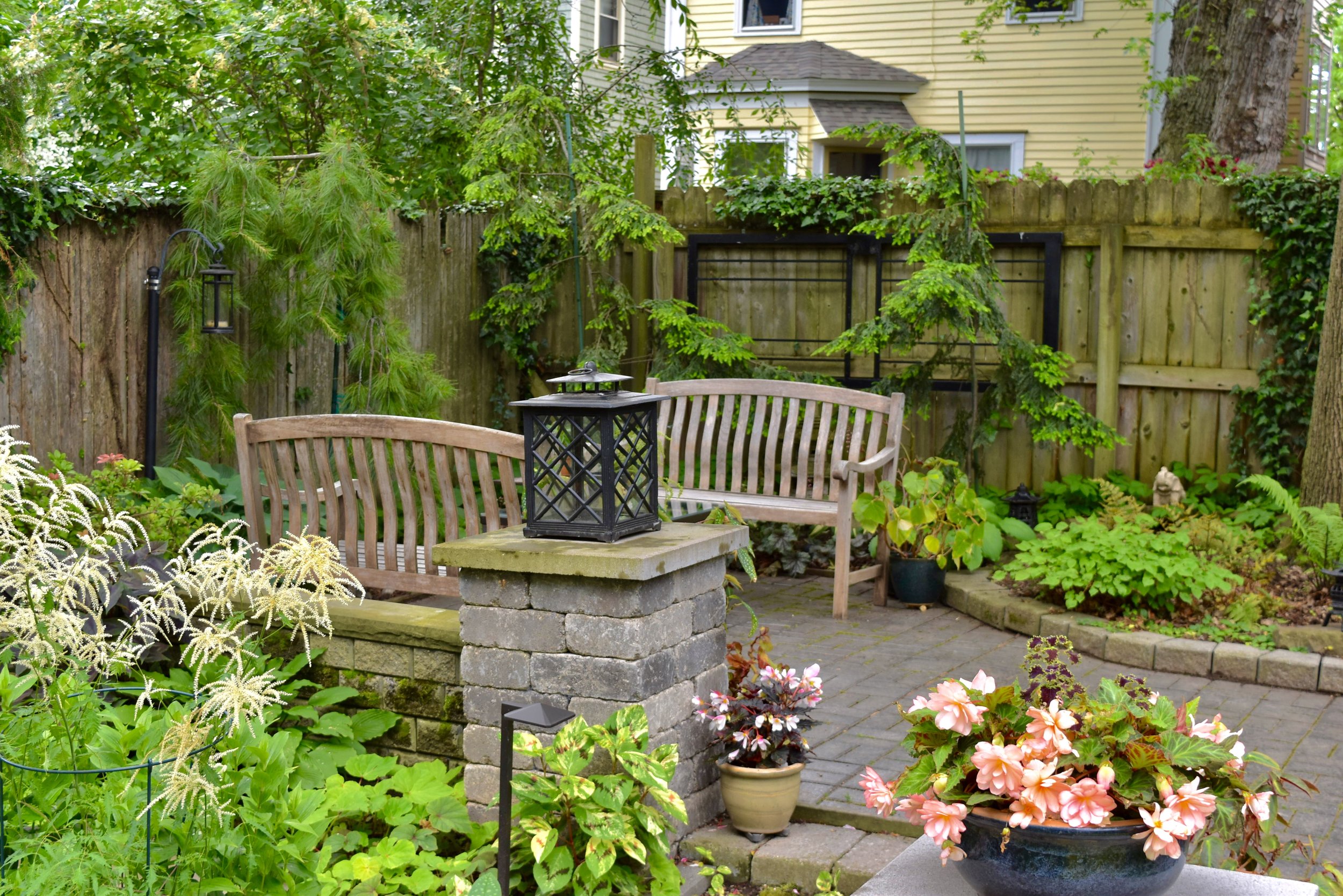
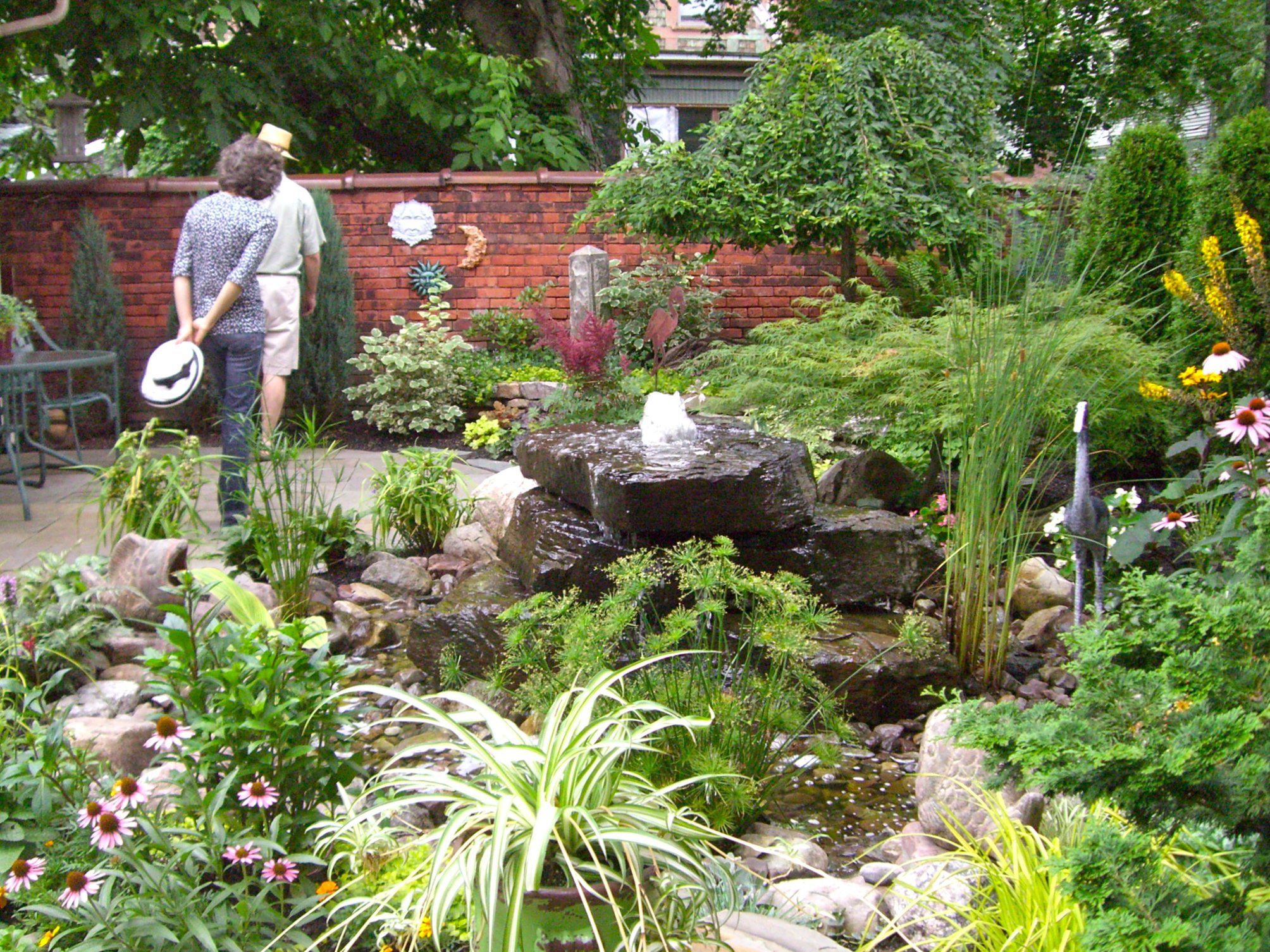
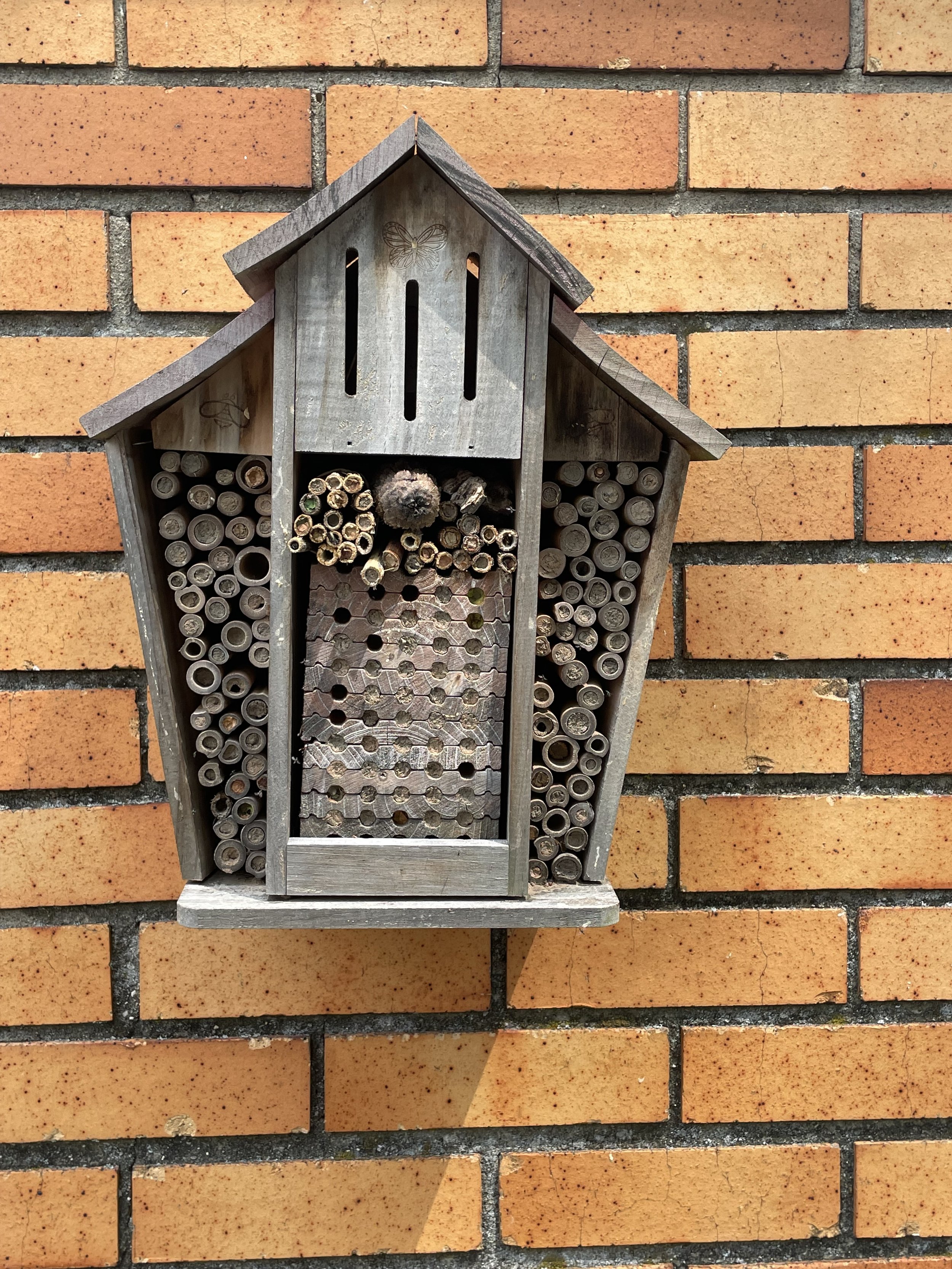
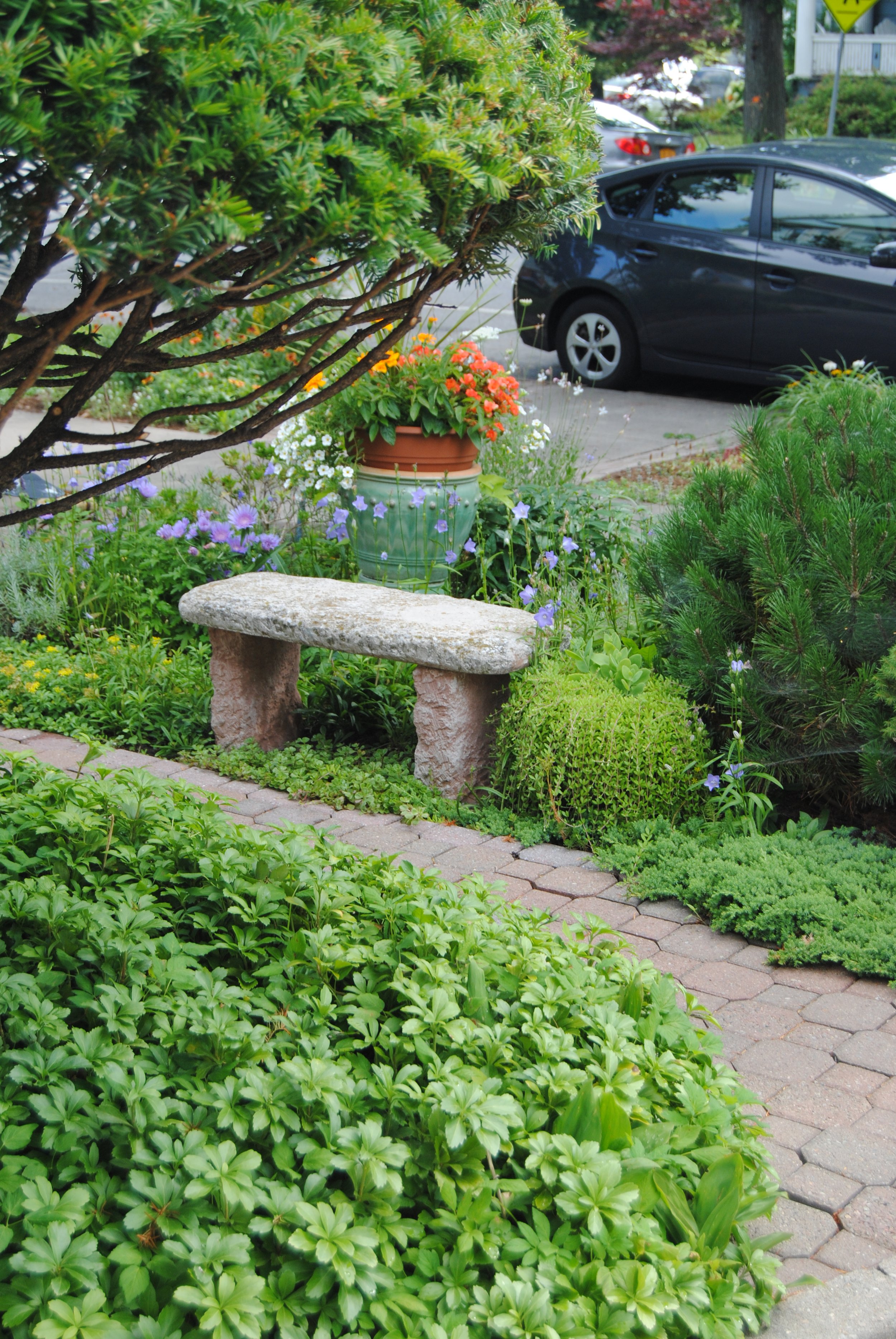
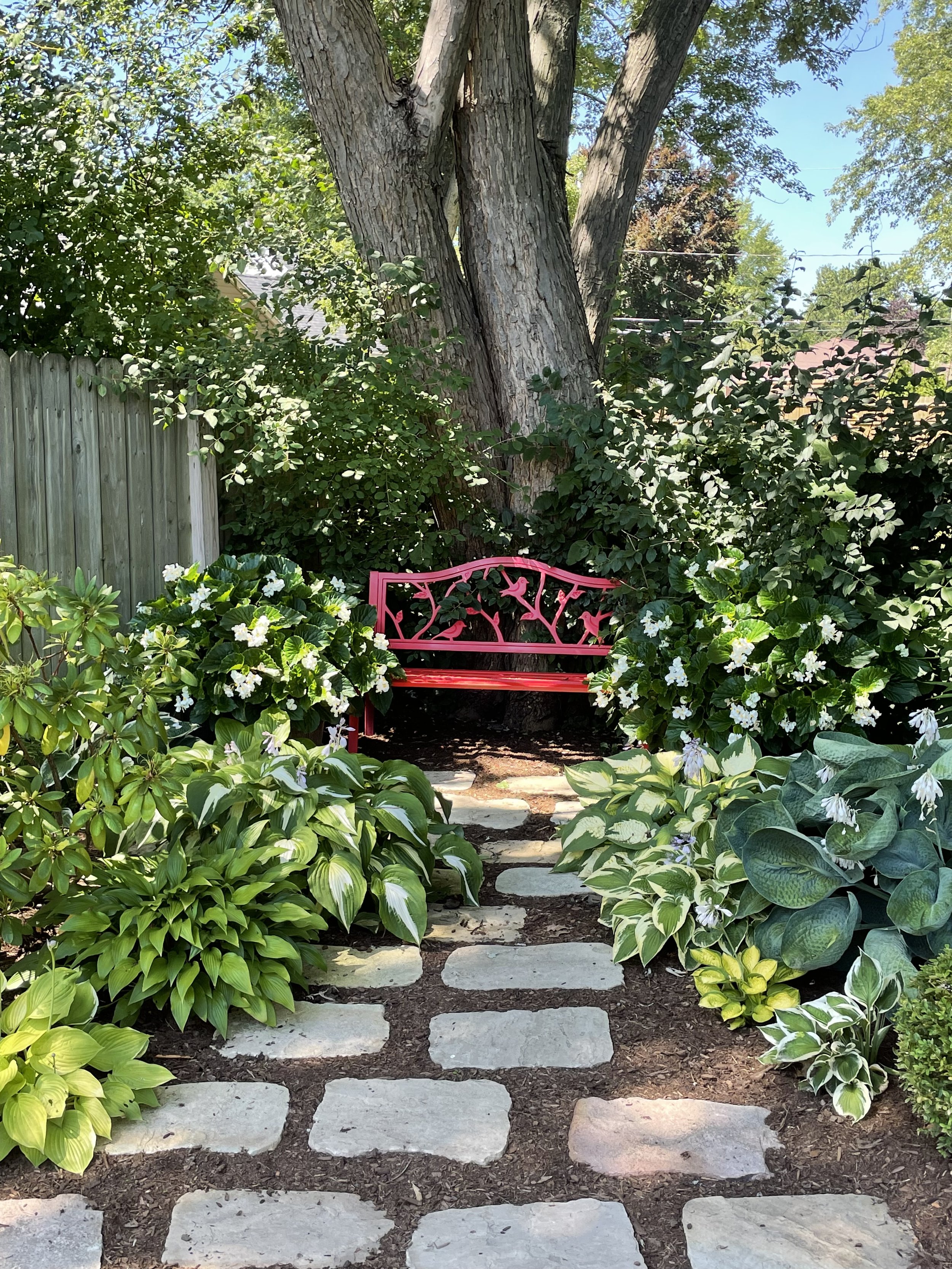
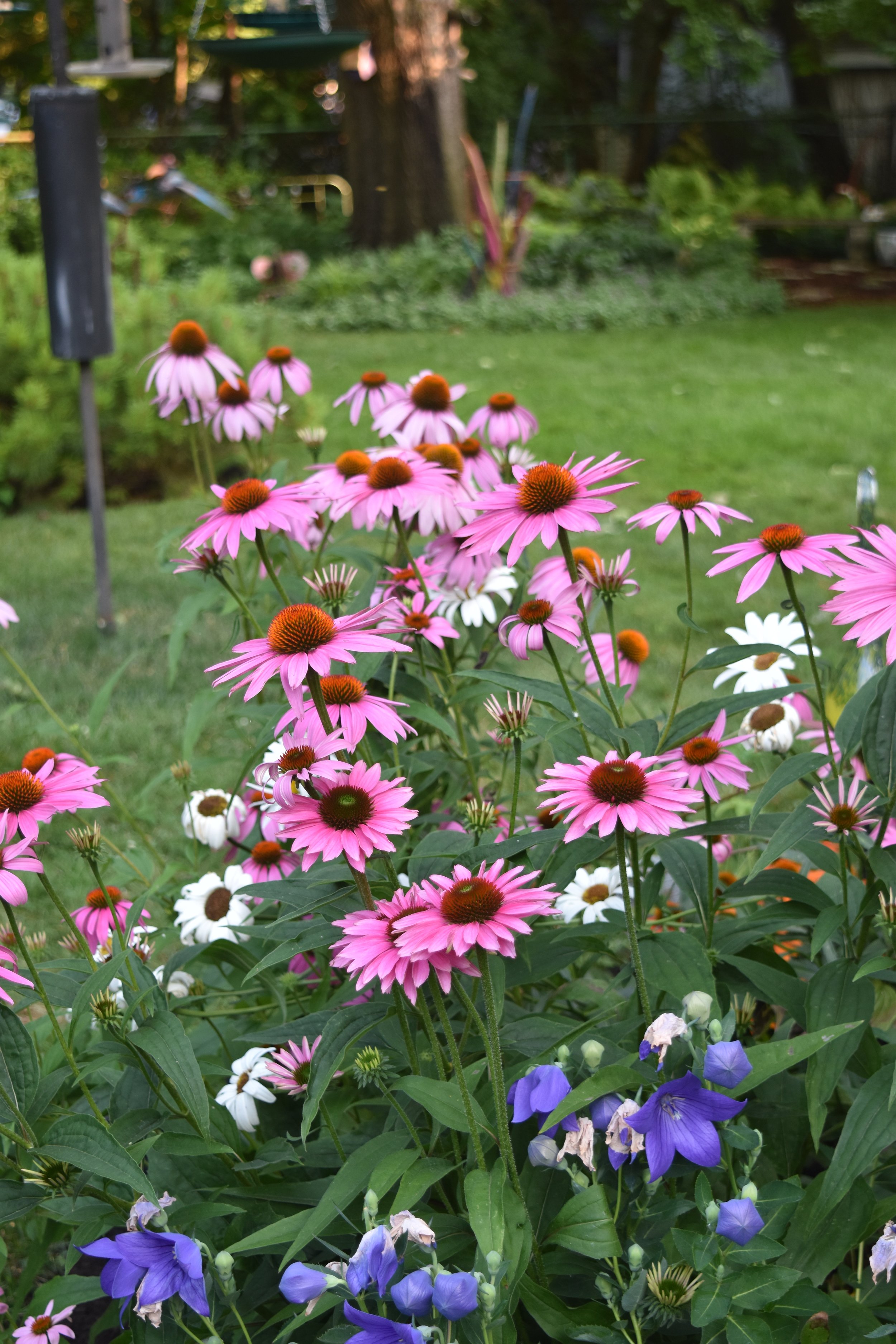
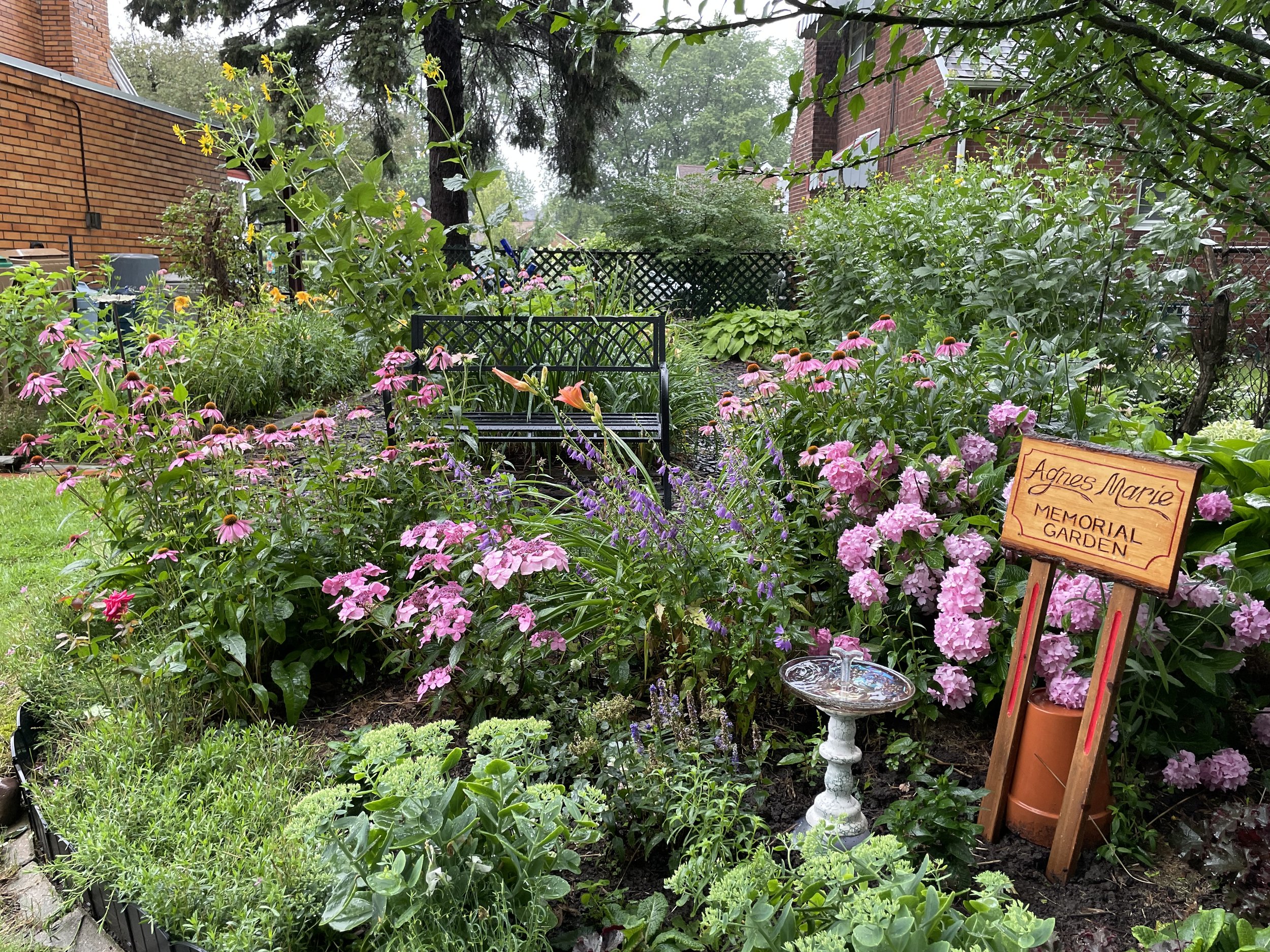
Buffalo Niagara Healing and Therapeutic Gardens
This list may not be comprehensive. If you know of another healing or therapeutic garden, please email info@gardensbuffaloniagara.com.
Buffalo Botanical Garden’s Mercy Hospital Healing Garden 2655 South Park Ave, Buffalo
Catholic Health’s The John M. Repetski Healing Garden 2950 Elmwood Ave, Kenmore
Circle of Love: A Healing Garden Millard Fillmore Suburban Hospital, Amherst
Endeavor Health Community Garden 1131 Broadway St, Buffalo
Erie County Youth Detention Center Healing Garden 810 East Ferry St, Buffalo
Lotus Pad at HomeSpace 1030 Ellicott St, Buffalo
Gardens of Compassion 4661 Porter Rd, Niagara Falls
Gardens of Compassion with Community Mission St. James Methodist Church, Niagara Falls
The Healing Garden at Kevin Guest House 782 Ellicott St, Buffalo
Heart, Love, & Soul Therapeutic Garden 939 Ontario St, Niagara Falls
Jewish Family Services Community Garden 70 Barker St, Buffalo
Roswell Park’s Rooftop Healing Garden 4661 Porter Rd, Niagara Falls
Niagara Street Pediatrics/Buffalo Sprouts 1050 Niagara St, Buffalo
Rebecca Rose Recovery Center Therapeutic Garden 107 Davey St, Buffalo
Resources and Help Against Marital Abuse (RAHAMA) Healing Garden 1272 Delaware Ave, Buffalo

